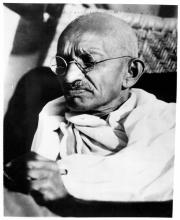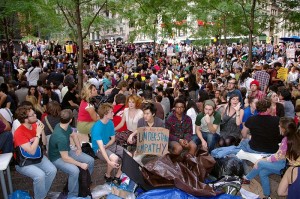martin buber

Mention the concept of “nonviolent resistance” and two names immediately come to mind: Mahatma Gandhi, the Indian leader who led his nation to independence from British colonial rule, and Martin Luther King Jr., who led the struggle for civil rights in America. Tragically, both champions of nonviolence were assassinated: Gandhi in 1948 and King 20 years later. Today many people throughout the world revere both advocates of nonviolence.
While Gandhi and King were largely successful in their efforts, the question remains whether nonviolent resistance is always the most effective strategy in the face of radical evil, injustice, and aggression. After all, there remains a thin line between nonviolence and martyrdom.
Professor Charles DiSalvo of West Virginia University has recently published “M.K. Gandhi, Attorney at Law: The Man Before the Mahatma,” an excellent study of Gandhi’s 20 years as a young attorney in South Africa where he faced anti-Indian stereotyping and bigotry.
Interestingly, Gandhi’s two closest friends were Jews he knew in Durban and Johannesburg. But despite Gandhi’s personal friendships and his commitment to freedom and security for his own people, he was indifferent, at best, or naive, about the Nazi persecution of Jews.

Jonathan, 19, who works at a fast food restaurant, said: "There isn't really room for religion here. We are trying to focus on the big problems we face that we all have in common. Religion gets people focused on too many specifics and divides."
His friend Chris chimed in, "How could anything that caused so many wars be any good?"
I asked a group that was serving food what they would think if more religious people joined.
"Awesome! Some Muslim guys came down and offered to do all the food one day," one young woman said.
"No way!" responded a middle-aged man who had been pointing other protestors to vegetarian sandwiches. "We just got a bunch of food donated by some church in North Carolina."
Many protesters here have had some bad experiences with religion, but it's clear that they are genuinely open to seeing religion done differently.
As the band of runaway Israelite slaves wander in their search for freedom, again and again they grow rebellious. In the greatest of these rebellions, Korach criticizes Moses, claiming "The whole community is holy -- all of them! Why do you, Moses and Aaron, raise yourselves above them?" (Numbers 16: 1-3ff)